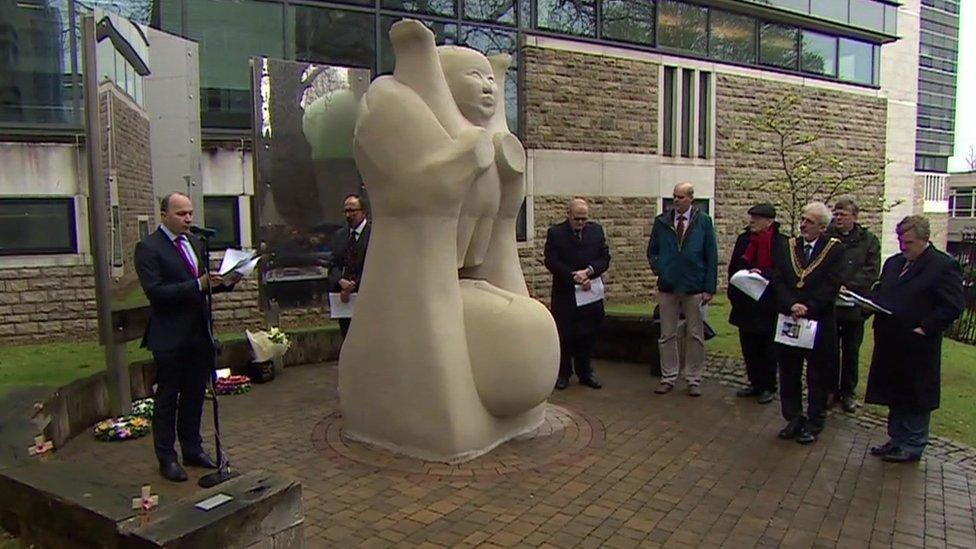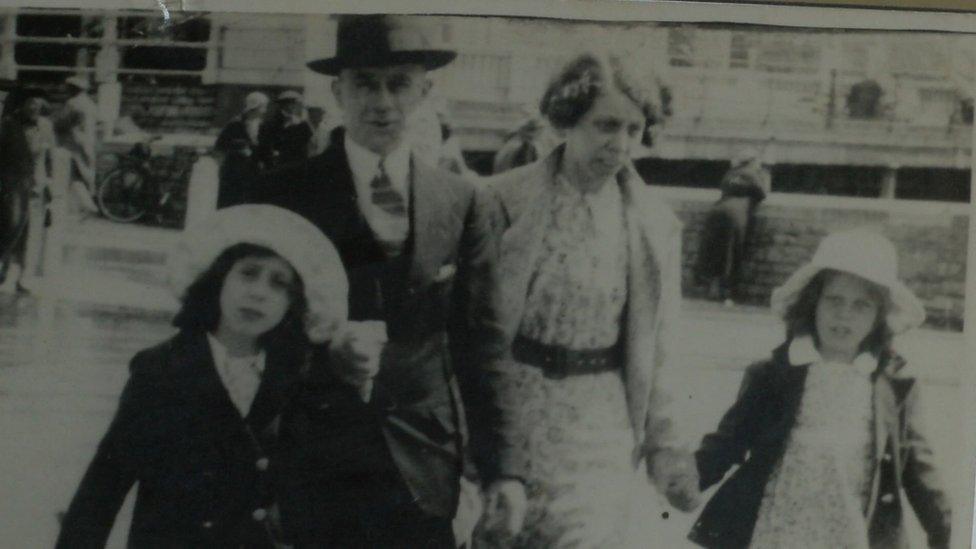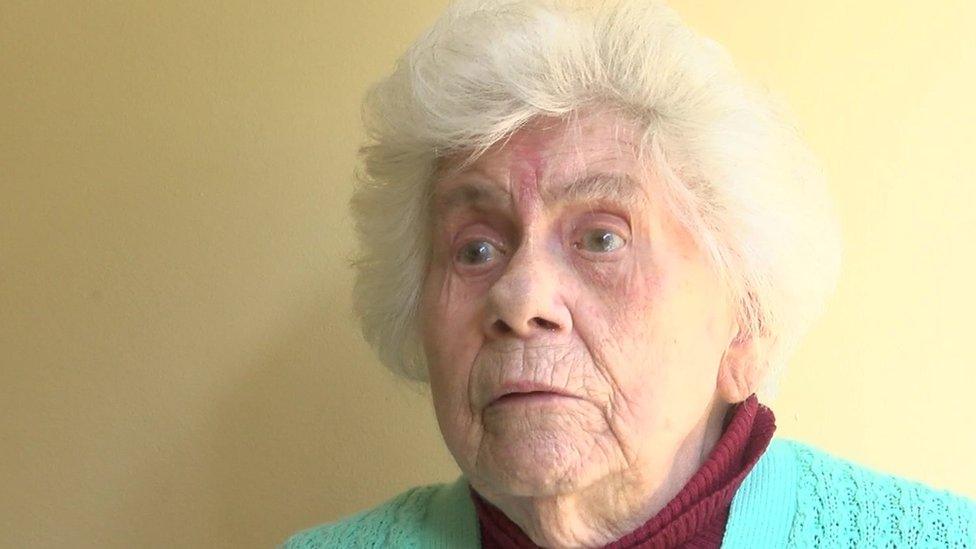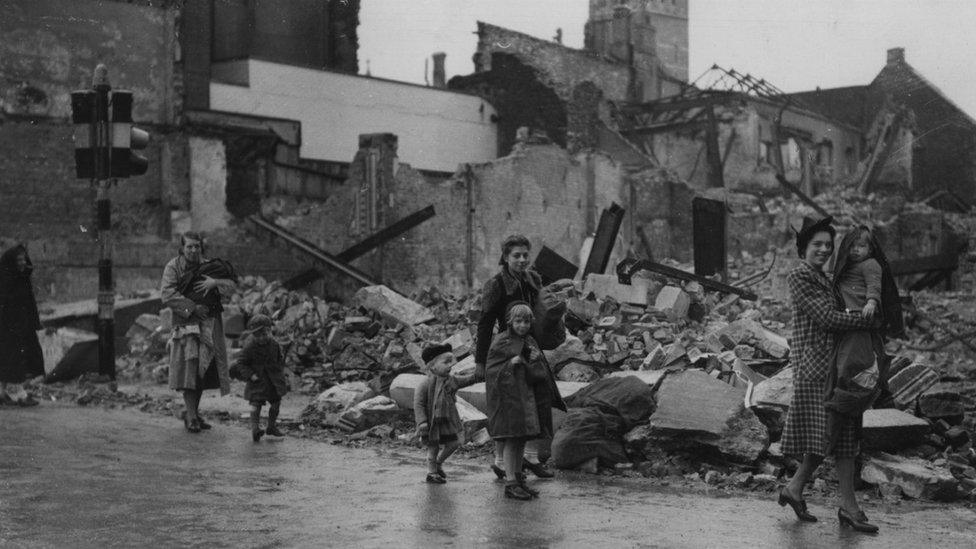Plymouth Blitz: Victims honoured on 75th anniversary
- Published
A survivor who lost four family members in a World War Two bombing has described her ordeal on the 75th anniversary of the attack
The 76 victims killed in a World War Two air raid shelter bombing have been honoured at a service marking the 75th anniversary of the attack.
Portland Square shelter in Plymouth was struck on 22 April 1941, causing the greatest loss of civilian life in the Plymouth Blitz.
Survivors attended the ceremony at the site - now part of Plymouth University.
Barbara Mills, 86, who lost four family members in the attack, was 11 years old when she was pulled from the rubble.

The ceremony was held next to the memorial sculpture by local artist Frana Favata

Barbara Mills, on the left, lost both her parents and her sister when Portland Square shelter was bombed by the Germans

Ms Mills said despite losing her family she was "very lucky"

Much of Plymouth was devastated during the German raids in 1941
"I started to cry when it got a bit heavy with the guns and the bombs coming down. And my mum said if you make that noise I'll take you home," she said.
"So I put my head down on her lap and went to sleep and I didn't know anything more then until I came round.
"I couldn't move and started shouting 'help'."
She was one of only three survivors - her younger sister, parents and grandfather were all killed.
Politicians, members of the local clergy and armed forces cadets also attended the service, where tributes were paid by the university deputy vice-chancellor Professor Simon Payne and officers from the Students' Union.
A 10ft (3m) memorial sculpture depicting a child raised in an adult's arms formed the centre piece of the ceremony.
The statue was completed by local artist, external Frana Favata in 2009 to commemorate the victims of the Portland Square bombing.

The Blitz: September 1940 - May 1941
The sustained German bombing of major British cities began towards the end of the Battle of Britain
Hitler ordered his air force the Luftwaffe to switch its attention from RAF infrastructure to urban centres of industrial and political significance
In the first years of the Blitz, Anderson shelter were provided by the government, and 150,000 of these were distributed to houses with gardens
About 43,000 civilians were killed in the raids, including 1,178 in the Plymouth Blitz which began in March 1941
The bombings petered out when Hitler began to focus on his plans to invade Russia
